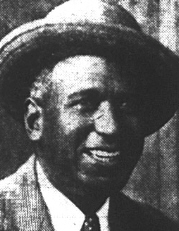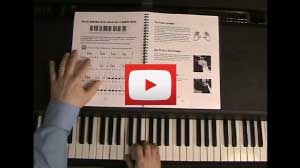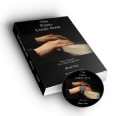Early Blues Pianists:
George Thomas, Hersal Thomas, Clarence Williams, Cow Cow Davenport
The early blues pianists played a music that was very similar to what would later be called "boogie woogie." Both W.C. Handy and Jelly Roll Morton claim to have heard the sound of the eight-to-the-bar left hand bass in a 12 bar form before 1910. Pianists were playing this music the Texas and Louisiana lumber and turpentine camps by 1913, and at rent parties in the northern cities within a few years of that. There are reports of a "Joe Dudlow" being one of the first early blues pianists, and the early blues piano style was originally known as "Dudlow Joe."
George and Hersal Thomas, Clarence Williams and Cow Cow Davenport brought the sound of blues piano to the masses.
George Thomas, 1885-1930
George Thomas was born into a musical family in Houston. This early blues pianist was the oldest of many siblings including pianist singer Sippie Wallace and Hersal Thomas.
George is often attributed as an originator of "boogie Woogie." He was the first, along with Clarence Williams, to publish a 12 bar blues with a boogie bass line, "New Orleans Hop Scop Blues," in 1916. He made the first record of a walking bass line with his recording of "The Rocks" with his band The Muscle Shoals Devils, in 1921. With his brother Hersal he recorded "The Fives," (also 1921) a song that included the first recording of many elements of blues and boogie piano that are still used today.
Hersal Thomas, 1909-1926
Younger brother to George Thomas by 24 years, Hersal was an especially huge influence on other early blues pianists for someone who lived only 15 years. Though not much is known about Hersal, he did record with Louis Armstrong and King Oliver in 1926. He was a major influence on the kings of boogie woogie, Albert Ammons and Meade Lux Lewis. Hersal died in 1926 from food poisoning.
Clarence Williams, 1898-1965
Clarence Williams was born in Plaquemine, Louisiana, and ran away from home at age 12 to work in a minstrel show. By 1910 he was working in New Orleans as a pianist and entertainer and managing vaudeville clubs in the Storyville district. Clarence was composing by 1913, and had started what would become the leading black publishing company. He also toured with W.C.Handy, and opened publishing offices in Chicago and New York.
In 1921, Clarence settled permanantly in New York, working as a songwriter, publisher, and leader of one of the top recording bands in the city. He supervised recordings for the Okeh record label, overseeing sessions by Louis Armstrong, Sidney Bichet, King Oliver, and the "Empress of the Blues," Bessie Smith. In 1933 he became the head of Vocalion Records, a leading "race" (blues) record company. He sold his catalog to Decca Records in 1943 for $50,000, and retired in Queens, N.Y., where he died in 1965.
Some of the many songs he either co-wrote and/or published include "The Royal Garden Blues," "Baby Won't You Please Come Home," "'Tain't Nobody's Business," "Gulf Coast Blues," and "I Wish I Could Shimmy Like My Sister Kate." Clarence Williams III of Mod Sqaud fame is his grandson.
Charles "Cow Cow" Davenport, 1894-1955

Charles "Cow Cow" Davenport was born in Anniston, Alabama, to a very religious family. He was sent to school at a seminary, where he studied the classics, but was expelled for playing ragtime piano. By 1920, he was working with minstrel shows travelling the south. He was an accompanist to blues singer Ivy Smith, and recorded many records on many labels and became a talent scout for Vocalion Records.
The name "Cow Cow" comes from a song "Cow Cow Boogie," which he did not write, but performed in the Abbott and Costello movie Ride 'Em Cowboy, making him one of the most famous of the early blues pianists. "Cow Cow Boogie" was written by Benny Carter, Gene DePaul and Don Raye. Davenport did claim to have originally written "I'll Be Glad When You're Dead (You Rascal,You)," but had sold the rights. Ahmet Erteguns's song "Mess Around," written for Ray Charles, was based on a Cow Cow Davenport riff.
Davenport had a stroke in the mid 30's, and lost the use of his hands. Pianist Art Hodes helped in his rehabilitation in 1938, and Davenport was able to do some limited piano playing up until his death in 1955
Start Playing Piano Today with the Piano Guide Quick Start Course!
Easy to follow step-by-step lessons designed for adult beginners. The next best thing to private lessons!
What You'll Learn:
- Notes on the piano/keyboard
- Proper fingering
- C major scale
- Chords
- How to read music
- And much more!

Video lessons - watch as I play everything for you.

